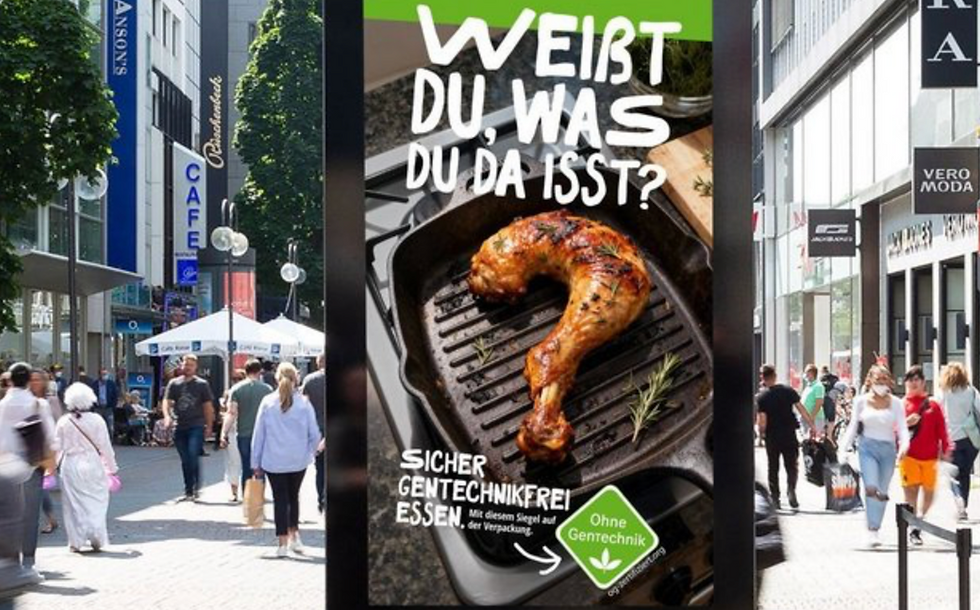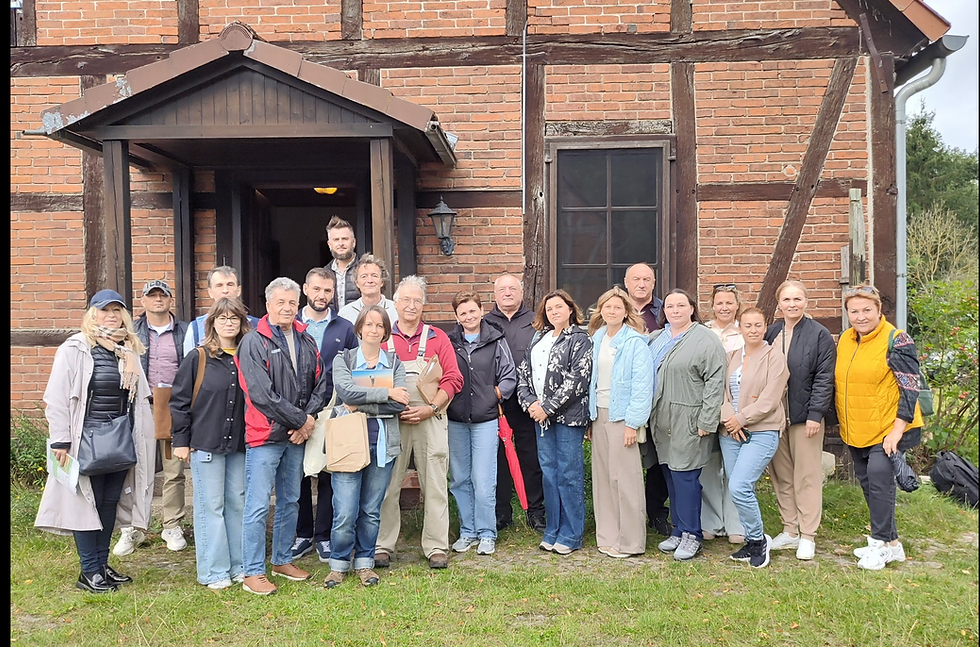NGTs: Transparency and Labelling has Top Priority
- BiO ReporterIn

- Oct 20
- 3 min read
Updated: Oct 21
The trilogue between the EU Commission, Council and Parliament on the revision of genetic engineering legislation has restarted in Brussels The Danish Presidency aims to conclude the deregulation of NGTs (New Genetic Technologies) by end of the year. The effects for the organic and non-GMO sector were discussed by representatives from IFOAM Organics Europe, the European Non-GMO Association (ENGA), tegut and VLOG (Association for Food without Genetic Engineering) at Anuga. Federal Minister of Agriculture Alois Rainer is keeping a low profile.

The panel from left: Eric Gall, IFOAM Organics Europe, Alexander Hissting, VLOG, Heike Moldenhauer, ENGA (Moderation) und Fritz Konz, Tegut. (Foto: Karin Heinze)
Effects of new NGT rules
‘New rules for new genetic engineering: What lies ahead for the organic industry and the non-GMO sector?’ – that was the motto of the panel discussion at ANUGA in Cologne. If the draft deregulation bill introduced by the EU Commission is passed, the organic and non-GMO industries will face a whole series of serious challenges. The two sectors have undertaken numerous campaigns, open letters, studies, expert reports and petitions, as well as holding talks in Berlin and Brussels to highlight the unacceptability of the planned changes and the dangers of deregulating new genetic engineering for manufacturers, retailers and consumers. So far, without any resounding success. On 4 October, Eric Gall from the European organic umbrella organisation IFOAM Organics Europe, Alexander Hissting from the Association for Food without Genetic Engineering (VLOG) and Fritz Konz from the retailer Tegut discussed the challenges posed by the planned EU deregulation of NGT, moderated by Heike Moldenhauer from the European Non-GMO Industry Association (ENGA).
Transparency must be maintained
All panel participants agreed that transparency and freedom of choice for consumers must be maintained. However, this is only possible if all types of genetic engineering, including NGT, are labelled and thus remain recognisable in shops, as has been the case up to now. The panel made an urgent appeal to politicians to maintain transparency through the labelling of products containing genetic engineering. Following the discussion, Federal Minister of Agriculture Alois Rainer (CSU) stated, when asked, that it was highly questionable whether there would be a mandatory labelling requirement for NGTs in end products in the future. From the perspective of those affected, the players in the organic and non-genetically modified food industry, this raises the question of whether the ministry will advocate for reliable rules for labelling and coexistence.

Federal Minister of Agriculture Alois Rainer did not give a concrete answer on the issue of genetic engineering. (Photo: Karin Heinze)
Continue to exert influence for comprehensive genetic engineering labelling!
It is important that organic and non-GMO companies continue to exert influence in order to draw the attention of political decision-makers in Berlin and Brussels to the urgent need to maintain labelling, freedom of choice and coexistence. In view of the great importance of GMO-free food for consumers and with reference to the consistent economic success of the GMO-free food industry, Alexander Hissting, VLOG, explained: ‘Comprehensive GMO labelling must not be “questionable”; it is absolutely essential for consumers and the economy! This is the minimum that Mr Rainer must advocate for in Brussels. According to the survey, four out of five Germans expressly demand this of him personally.’

Almost 80% of consumers are calling on Minister Rainer to advocate for labelling. (Photo: VLOG)
VLOG launches major campaign
Across Germany, on large public screens and online, distorted food products in the form of a question mark ask viewers: ‘Do you know what you're eating?’ and point to the ‘Ohne GenTechnik’ (GMO-free) seal. According to several surveys, around 80 to over 90 per cent of people in Germany want to continue to be able to recognise whether their food contains genetic engineering. That is why VLOG Managing Director Alexander Hissting says:
"If the planned deregulation really comes into force, more and more foods could soon contain “hidden” genetic engineering. Then the “Ohne GenTechnik” seal would become even more important. Alongside organic products, which are also GMO-free, it would then offer consumers the only way to reliably avoid GMOs in their food when shopping. Because whatever the EU's final decision, our seal will continue to guarantee that products are GMO-free." Read the full article on the VLOG website.

VLOG campaign with eye-catching motifs. (Photo: VLOG)










Comments